(By: #lilac)
If ever there was a question more frequently asked than what the best food is for your pet dogs and cats, it doesn’t come to mind.

Over and over, Dr. Jeff receives the inquiry in any number of forms; what’s the best food for my dog? What’s the best food for my cat? What’s the best food for my specifically-inbred-custom-ordered-and-privately-purchased-award-winning pet? Ultimately, the answer remains the same:
“Aside from individual dietary needs that have been outlined by a vet, most pets need a steady diet of vitamins and nutrients available in standard care pet food.” - Dr. Jeff
Let’s take a closer look at what that means.
First and foremost,

it's crucial to recognize that individual pets have unique needs.
Just as we humans have our own dietary preferences and sensitivities, our four-legged companions may require specific considerations based on factors like age, breed, size, and overall health. This is where the guidance of a knowledgeable veterinarian becomes invaluable. They can provide personalized advice, taking into account any dietary restrictions or health conditions that require special attention.
However,

for the majority of pets without specific dietary constraints, high-quality, standard-care pet food serves as an excellent foundation.
These commercially available pet foods undergo rigorous testing and meet stringent nutritional standards to ensure they provide the essential building blocks for optimal health. They are formulated to offer a balanced combination of proteins, carbohydrates, healthy fats, vitamins, and minerals that support overall well-being.
As Dr. Jeff says in a previous video responding to a food brand question, “there’s a reason for the available variety of pet food - there are a lot of good brands out there.” He stresses the importance of looking for AAFCO-approved, informative labels while keeping an open mind to new names.
Compare & Contrast

When evaluating pet food options, it's essential to prioritize quality over marketing hype. Some ways to choose better foods:
- Look for reputable brands with a track record of producing reliable and nutritious products.
- Read the labels carefully, paying attention to the ingredients list and the guaranteed analysis.
- Look for AAFCO labeling.
- Opt for foods that list whole protein sources (such as chicken, beef, or fish) as the main ingredient, as they offer superior nutrition.
While it can be tempting to succumb to the allure of trendy fad diets or home-cooked meals, it's essential to approach these alternatives with caution.
DIY diets, no matter how well-intentioned, may lack essential nutrients or be imbalanced, potentially leading to nutritional deficiencies or health issues.
Always consult with your veterinarian before making any significant changes to your pet's diet.
Remember,

providing your pet with a steady diet of vitamins and nutrients through standard-care pet food sets the stage for a healthy and vibrant life.
Alongside nutrition, ensure access to fresh water, engage in regular exercise tailored to your pet's needs, and shower them with love and attention. This “whole-istic” understanding of pet care nurtures their physical and emotional well-being, creating a bond that will endure through the years.
In conclusion,

the best food for your Frenchie, Pug, English Bulldog, or any other furry companion lies in a well-rounded diet that meets their individual needs.
Trust the expertise of your veterinarian, opt for high-quality standard-care pet food, and provide the love and attention your pet deserves. With this balanced approach, you can rest assured that you are providing the nourishment required for a happy, healthy, and fulfilling life for your beloved pet.
Visit Dr. Jeff Werber’s Instagram account (@werbs_dvm) to view and submit questions and answers on weekly AMAs – or call and leave a voicemail at 424-835-0576. Your call will be returned posthaste. For emergencies, download Dr. Jeff Werber’s app Airvet, a video-chat option for veterinary needs at any time of day or night!
